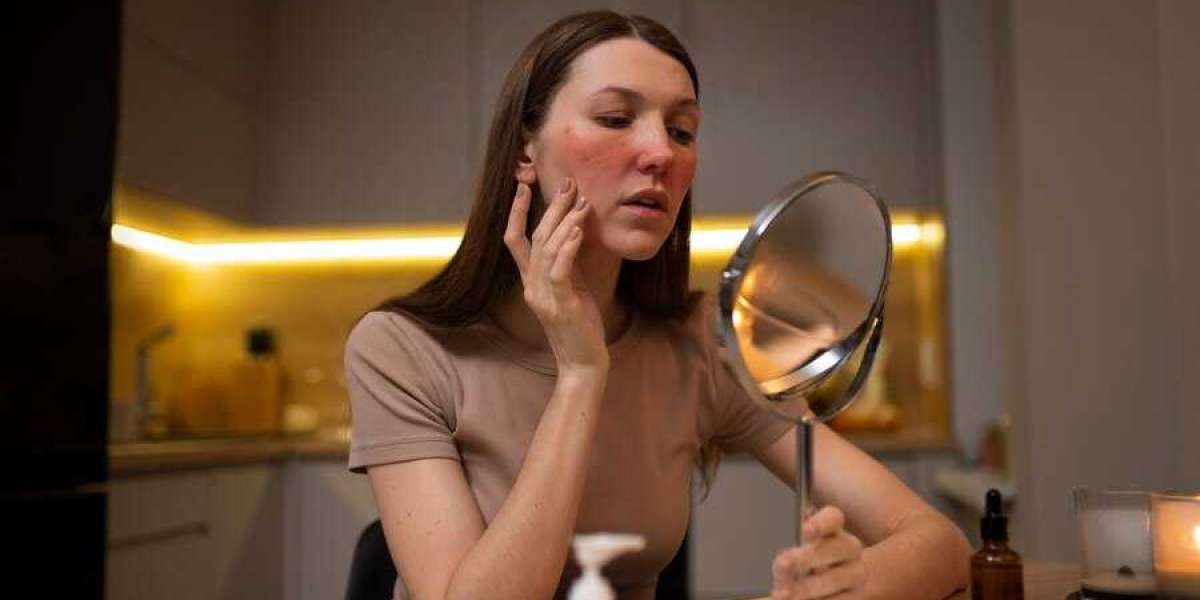Causes of Acne
1. Hormonal Changes
Hormones significantly influence acne development. During puberty, hormonal fluctuations can lead to increased oil production in the skin. Conditions such as menstruation, pregnancy, and hormonal imbalances (like polycystic ovary syndrome) can also trigger breakouts.
2. Excess Oil Production
The skin naturally produces oil (sebum) to keep it moisturized. However, when sebaceous glands produce too much oil, it can clog pores and lead to acne. This overproduction can be exacerbated by hormonal changes, stress, and diet.
3. Clogged Pores
Dead skin cells that accumulate and mix with excess oil can clog hair follicles. This blockage creates an environment where bacteria can thrive, leading to inflammation and breakouts.
4. Bacteria
Propionibacterium acnes is a type of bacteria that can contribute to acne development. When pores are clogged, these bacteria can multiply, causing inflammation and the formation of pimples.
5. Inflammation
Inflammation is a key factor in acne. The body’s response to bacteria or clogged pores can result in redness, swelling, and the pain associated with acne lesions.
Treatments for Acne
1. Topical Treatments
- Benzoyl Peroxide: An antibacterial agent that reduces bacteria and inflammation, helping to prevent clogged pores.
- Salicylic Acid: A beta hydroxy acid that exfoliates the skin, unclogging pores and reducing inflammation.
- Retinoids: Vitamin A derivatives that promote cell turnover, preventing clogged pores and minimizing acne scars.
2. Oral Medications
- Antibiotics: Prescribed for moderate to severe acne to reduce bacteria and inflammation.
- Hormonal Treatments: Birth control pills or anti-androgens can help regulate hormones and reduce acne in women.
- Isotretinoin: A powerful oral medication for severe, treatment-resistant acne that significantly reduces oil production.
3. Professional Treatments
- Chemical Peels: These treatments exfoliate the skin and can reduce acne lesions.
- Laser Therapy: Targeted laser treatments help reduce inflammation and kill acne-causing bacteria.
- Extraction: Dermatologists can safely remove large cysts or clogged pores to reduce inflammation and scarring.
Prevention Strategies
1. Establish a Skincare Routine
Creating a consistent skincare routine that includes gentle cleansing, exfoliation, and moisturizers can help keep the skin balanced. Choose non-comedogenic products to prevent clogged pores.
2. Use Sunscreen
Protecting your skin from UV damage is crucial. Opt for sunscreens that are non-comedogenic to shield your skin without clogging pores, which can help prevent breakouts.
3. Incorporate Serums
Using serums with ingredients like niacinamide or hyaluronic acid can provide additional hydration and help regulate oil production, further preventing acne.
4. Maintain a Healthy Diet
A balanced diet rich in fruits, vegetables, whole grains, and healthy fats supports overall skin health. Some studies suggest that high-glycemic foods and dairy may exacerbate acne, so monitor your diet for potential triggers.
5. Manage Stress
Stress can trigger hormonal changes that contribute to acne. Practicing stress-reduction techniques such as meditation, yoga, or regular exercise can help maintain hormonal balance.
6. Avoid Touching Your Face
Frequent touching can transfer bacteria and oil to your skin, leading to breakouts. Minimize contact with your face and keep your hair clean and away from your skin.
7. Seek Professional Help
If acne persists despite home treatments, consider consulting a dermatologist. They can provide personalized recommendations and treatment plans tailored to your specific needs.
Conclusion
Acne can be a challenging condition, but understanding its causes, treatments, and prevention strategies is essential for effective management. Dermabkinx, a trusted skincare brand, emphasizes the importance of a holistic approach to skin health. By incorporating quality moisturizers, effective sunscreens, and targeted serums into your skincare routine, you can support your skin in the fight against acne.








